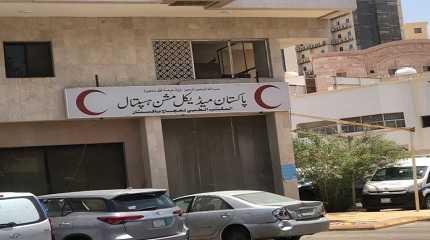
MAKKAH MUKARMA , Jun 20 (APP):The Pakistan Hajj Medical Mission’s main hospital here at Aziziyah, in collaboration with Saudi authorities, has been providing medical facilities to over 5,000 pilgrims daily.
Besides the main hospital, nine dispensaries manned by some 521 doctors and paramedical staff were providing free of charge medical assistance to the Hajj pilgrims in the holy city, Brig Dr. Shahamad Ali, Director of Pakistan Hajj Medical Mission told APP on Tuesday.
He said the Pakistani pilgrims were residing in nine sectors, each with its own dispensary which remained open round the clock to serve the pilgrims.
Dr Shamshad said a sizeable number of Pakistani pilgrims were elderly or those with chronic conditions such as diabetes, asthma, hypertension and heart ailments, necessitating frequent medical examination and care throughout their stay in Makkah and Madinah.
He said the 32-bed hospital was equipped with modern facilities such as a state-of-the-art laboratory, x-ray machine, pharmacy and dentistry services.
He advised the pilgrims to keep themselves properly hydrated by using sufficient water and fluids throughout the day, besides taking deep sleep. He said the individuals having medical problems should keep on taking prescribed medicines.
Medical Officer of the Pakistan Hajj Medical Mission Hospital, Dr Atta ur Rehman told APP that about 18 serious patients, including cardiac cases, were referred to Saudi hospitals, 10 of them recovered and the remaining were still receiving treatment.
He appreciated the Saudi Ministry of Health and other relevant authorities for prompt provision of medical facilities to the Pakistani pilgrims.
Dr Atta said a total of 14 ambulances were available, with one each stationed at every sector for prompt transportation of serious cases to the hospital.
Muhammad Asad Ibrar, a pharmacist, confirmed that medicines and essential medical items were available to meet the needs of patients.




